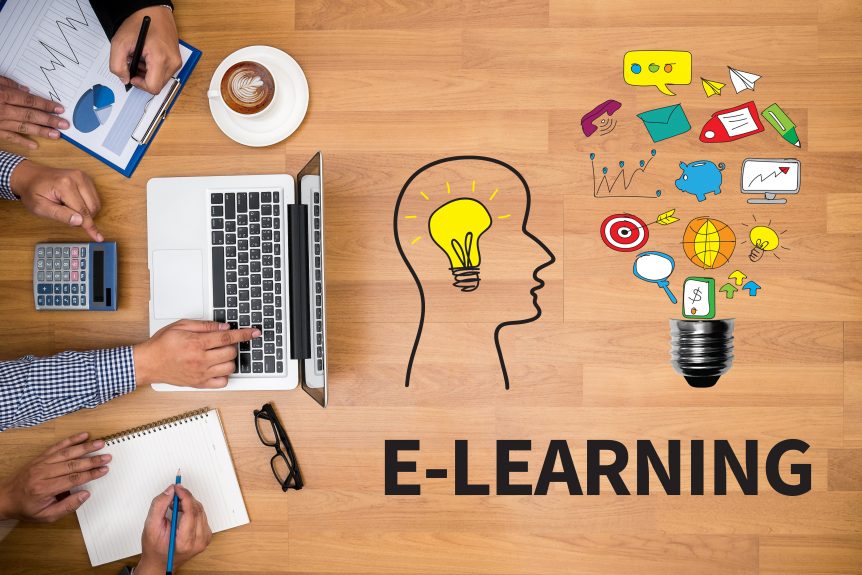Bridging Performance Gaps in Your Organisation Using an E-Learning Fundamental Skills Library
Poor performance impacts the productivity of your business. However, it’s rare to have employees that perform poorly in all aspects of their work. In those situations, the question of their suitability for the role must be considered.
For the majority of your team, poor performance comes in gaps. In other words, each individual employee will have gaps in their levels of competence. To improve productivity in your business, you need to bridge those performance gaps.
The best way to do this is by creating an e-learning fundamental skills library. This should have modules on topics that cover all the performance gaps that you identify with the objective of upskilling your team and improving overall productivity.
The Problem with Training
The solution to bridging performance gaps in your organisation sounds simple, but the reality of delivering the solution can be challenging. The solution we are talking about is training.
The common scenario is you identify a productivity issue in your business and then discover various performance gaps in your team that are the cause of the problem. You then develop a training plan to bridge the identified performance gaps.
Straightforward so far, until you look at the challenges that often occur if the training is delivered using traditional methods, such as classroom-based training:
- Retention rates – retention rates are often low in this scenario, not least because the training is usually one-size-fits-all.
- Not engaging – another reason for low retention rates is that it is often difficult to make fundamental skills training engaging and interesting. Instead, learners often view such training as being a chore and can even be against it before they go through it.
- Availability – the training may not be available immediately to the employee.
- Relevance – the training may not be relevant to the employee either because it doesn’t relate to their day to day experience or because they are already competent in that area.
- Current – for various reasons, training courses can go out of date.
- Business needs – the needs of your business could change creating new performance gaps and reducing the impact of others. This makes the training plan you created outdated.
- Consistency – training initiatives often come in peaks and troughs. Peaks usually occur during an employee onboarding process or when the company is dealing with a specific issue and mandates training as a solution. However, in the intervening periods – the troughs – performance gaps still exist, and they can even become more pronounced.
The E-Learning Approach
You need an approach to delivering fundamental skills training that is more structured, adaptable, and flexible. This is what you get when you create an e-learning library of modules that cover all the fundamental skills that are relevant to your business.
Benefits of Creating a Library of Fundamental Skills E-Learning Modules
There is a range of benefits to creating an e-learning library of fundamental skills training modules. Strategic benefits to your business include:
- By going through the process of identifying the topics you need to include in your fundamental skills e-learning library, you may be able to improve systems and processes in your business. These improvements in systems and processes could be part of the solution to bridging performance gaps.
- The process of establishing the module topics you need will also create a baseline for competence and performance in your business. This is important as it gives employees clarity, particularly when you consider that different managers may expect different things from them.
- Following on from the last point, having a fundamental skills library in place ensures learners are aware of what is expected of them overall.
- The library will also help make employees more aware of your business objectives.
There are also training benefits, as well as benefits to individual employees:
- A fundamental skills e-learning library ensures training is available when and where the employee needs it.
- Employees can complete the training modules at a time that suits them.
- Learners can be involved in determining their training path, skipping past modules in areas where they are competent so they can focus on weaker areas of their performance.
- Facilitates just in time learning, a learning strategy that delivers excellent engagement and retention rates.
- It’s easy to keep e-learning training modules up to date as you update the version of the module in the library and it’s instantly available to your whole team.
- It is also easy to add new modules to the library or to customise existing modules for specific locations in the UAE or elsewhere, as well as for different business units or roles.
- You can monitor the performance of each individual training module to ensure it delivers on its objectives, one of which is likely to be bridging the performance gaps of your employees.
- You can give immediate feedback to learners automatically through the training module to help the learner better understand their strengths and weaknesses. You can also give manual feedback when managers review the individual assessment results.
- E-learning is a cost-effective approach to delivering fundamental skills training. You’ll also get an excellent return on investment.
Upskilling with Fundamental Skills
Even the best people in your organisation will benefit from fundamental skills training from time to time as everyone has performance gaps and can improve. Creating a fundamental skills library of e-learning training modules is the most effective and beneficial method of delivering this training.

